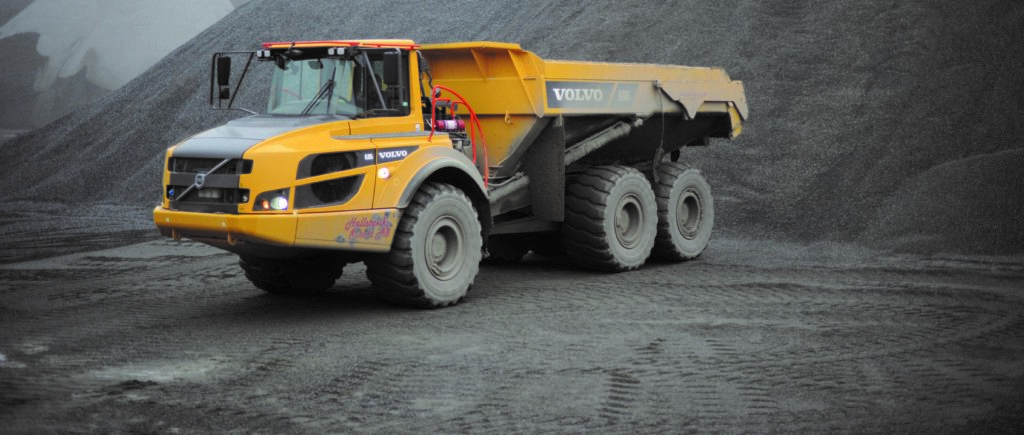
Aggregates industry
Aggregates (sand, gravel and crushed rock) are an indispensable raw material for urban development and constructing infrastructure in the form of roads, railways, ports and airports. Every year, approximately 100 million tonnes of aggregates are delivered from about 1,200 quarries.
Today, the fossil emissions from the production of aggregates amount to approximately 0.25–0.45 million tonnes of CO2-eq per year. On top of this, transporting aggregates accounts for almost 30 percent of heavy goods transport in society, amounting to approximately 1 million tonnes of CO2-eq.
Targets in roadmap
2030: Greenhouse gas emissions halved (compared with 2015).
2045: Fossil free aggregates industry.
To implement the roadmap, the industry is mainly working on:
- electrifying the production process.
- using fossil-free fuel in the production process.
- smarter transport and more efficient location of quarries.
- circular material flows.
The Swedish Aggregates Producers Association (SBMI) is responsible for the process of implementing the roadmap. Progress is followed up regularly by SBMI’s board and SBMI has launched and led a number of projects seeking to drive the climate transition of the aggregates industry.
Progress since the roadmap was launched
The industry’s production processes are rapidly being electrified
Today the majority of quarries in continuous operation have moved to electrified crushing production where an electricity grid with sufficient capacity is available. Inspired by Skanska and Volvo’s “Electric site” project, the next step is for quarry logistics to also go fossil free.
The project demonstrated that this could reduce emissions by 98 percent and energy costs by 70 percent. Where sufficient capacity is not available in the electricity grid, many have switched to biodiesel (e.g. HVO or FAME) despite this involving higher operating costs.
Testing smart electrification in smaller quarries
SBMI has also carried out a project that seeks to enable electrification on a broad front even in smaller quarries with a higher flexibility requirement. Three different concepts have been produced and in 2021 the most advanced concepts have been tested with good results in Norrbotten. SBMI has also worked with partners including Chalmers University of Technology to start to develop a concept to also electrify the diggers that load the aggregates.
EPD for aggregates enables climate requirements in procurement
Following growing pressure from clients in the industry, some actors in the sector have produced their own tools for environmental product declarations (EPD), making it possible for procurement clients to set clear and relevant climate requirements. SBMI has been working in a project with Chalmers that seeks to produce an industry-wide method for EPD for ballast.
Industry challenges
Under the current regulations, recycling of aggregates is complex, time-consuming and has dubious basis in law. Sweden’s implementation of the EU’s Waste Directive currently classes high quality aggregates produced during construction projects as waste, which makes circular management difficult. There are no end-of-waste criteria for products that have themselves been labelled as waste. This leads to too high amounts of aggregates being processed in a linear rather than a circular fashion, being driven to landfill instead of being used in urban development.
Aggregates are a regional product. If they are transported further than about 20 km, the costs and the emissions become unreasonable in relation to the product. However, long and unpredictable permit processes with major regional differences in application make it difficult to obtain permits for producing aggregates near to the construction site.
- Aggregates industry
- Agricultural sector
- Automotive industry – heavy transport
- Automotive industry – passenger cars
- Aviation Industry
- Cement industry
- Concrete industry
- Construction and civil engineering sector
- Digitalisation consultancy industry
- Electricity sector
- Fast moving consumer goods industry
- Food retail sector
- Forest sector
- Gas sector
- Heating sector
- Heavy road haulage industry
- Maritime industry
- Mining and minerals industry
- Petroleum and biofuel industry
- Recycling sector
- Ski resort sector
- Steel industry
- The Innovation and Chemical Industries
Process owner: Swedish Aggregates Producers Association
Published: 2019




